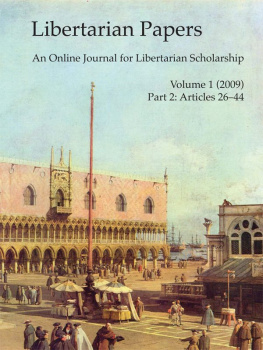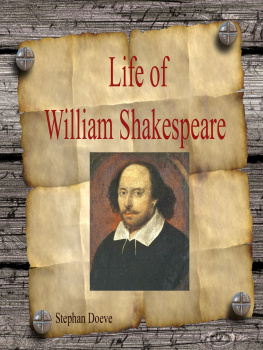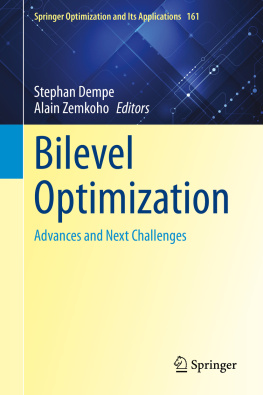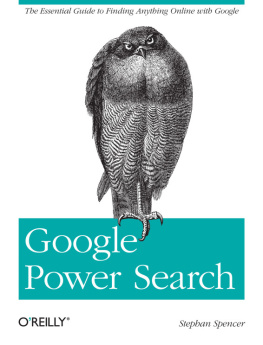Stephan A. Schwartz - The Alexandria Project
Here you can read online Stephan A. Schwartz - The Alexandria Project full text of the book (entire story) in english for free. Download pdf and epub, get meaning, cover and reviews about this ebook. year: 2001, publisher: Backinprint.com, genre: Science fiction / Religion. Description of the work, (preface) as well as reviews are available. Best literature library LitArk.com created for fans of good reading and offers a wide selection of genres:
Romance novel
Science fiction
Adventure
Detective
Science
History
Home and family
Prose
Art
Politics
Computer
Non-fiction
Religion
Business
Children
Humor
Choose a favorite category and find really read worthwhile books. Enjoy immersion in the world of imagination, feel the emotions of the characters or learn something new for yourself, make an fascinating discovery.
- Book:The Alexandria Project
- Author:
- Publisher:Backinprint.com
- Genre:
- Year:2001
- Rating:4 / 5
- Favourites:Add to favourites
- Your mark:
- 80
- 1
- 2
- 3
- 4
- 5
The Alexandria Project: summary, description and annotation
We offer to read an annotation, description, summary or preface (depends on what the author of the book "The Alexandria Project" wrote himself). If you haven't found the necessary information about the book — write in the comments, we will try to find it.
The Alexandria Project — read online for free the complete book (whole text) full work
Below is the text of the book, divided by pages. System saving the place of the last page read, allows you to conveniently read the book "The Alexandria Project" online for free, without having to search again every time where you left off. Put a bookmark, and you can go to the page where you finished reading at any time.
Font size:
Interval:
Bookmark:
The Alexandria Project
As an archaeologist, with 20 years experience working in Alexandria, I would say the discoveries are of the highest importance.
Professor Mieczyslaw
Rodziewicz
Director, University of Warsaw,
Archaeological Mission in Alexandria
Alexandria Project shows what can be done once you quit arguing about whether psi is real, and start thinking about what might be done with it. Reads like a novel, but this extraordinary story is true.
Christopher Bird
Author of
The Divining Hand,
The Secret Life of Plants
The Engineering of Psi - Volume Two
By
STEPHAN A. SCHWARTZ
All Rights Reserved 1983, 2001, 2013
by Stephan A. Schwartz
ebook edition
No part of this book may be reproduced or transmitted in any form or by any means, graphic, electronic, or mechanical, including photocopying,
recording, taping, or by any information storage or retrieval system, without the permission in writing from the publisher.
A Nemoseen Book
Published by Nemoseen Media
P.O. Box 905
Langley, Washington 98260
www.nemoseen.com
Originally published by Delacorte Press/Eleanor Friede
ISBN: 0-595-18348-4
Printed in the United States of America
For Hayden
This book would not have happened without the cooperation and support of the government and people of Egypt. I cannot name them all, although many are mentioned in the book, but I will choose as their representative His Excellency, Dr. Mohamed Fouad Hilmy, the governor of Alexandria. Without his personal support there would have been no book.
The Alexandria Project is a final distillation of a project made real by many hands, minds, and hearts; I am its chronicler. Those who shared the journey with me are named in the body of the book. For them, thanks is not enough. Each, in his own unique way, helped to shape this experience, and I am grateful.
The writing of the book was a far lonelier voyage. Only two people shared it with me fully: my wife, Nancy Hayden, and my friend, David Keith. Each brought a special gift. David, my colleague in Mobius, has walked each step in writing this book, bringing humor, good editorial judgment, and an untiring attention to detail to a project that consumed time in great drafts. His hand is in every pageand I cannot thank him enough.
I would also like to thank Trammell Crow, Gordon McLendon, Doris Gates, John and Charlotte Fink, and Richard Gunther for the supportfinancial and psychologicalthey so generously gave me.
This book also gives me a chance to acknowledge and thank Rand De Mattei, Josh Reynolds, Brando Crespi, Joel Glickman, and, particularly, my attorney Robert Krintzman, whose careful guidance is so much appreciated. Their involvement in creating Mobius, and the friendship they have shown me, has earned them my abiding gratitude.
To Bill Froug, who suggested the format of the book, I welcome this chance to say thank you. I also want to acknowledge gratefully the support I have received from my editor and publisher, Eleanor Friede, and her associate, Barbara Bowen. They have been tolerant, supportive, and professionalsomething perhaps only another author can understand.
And finally, for Nancy Hayden, to whom this book is dedicated I love you, and thanks.
The three books in this series, The Secret Vaults of Time, The Alexandria Project, and Mind Rover: Explorations with Remote Viewing comprise the bulk of my experimental archaeological remote viewing research, as well as the intellectual lineage from whence it springs. Each volume is complete within itself. However, they are also a trilogy. Each explores the practical application of Remote Viewing, a mysterious human ability to know things in spite of being shielded from that knowledge by time or space, or both.
Volume One -- The Secret Vaults of Time: Tells the stories of researchers from around the world who over a century prior to my involvement successfully located and reconstructed archaeological sites using Remote Viewing. These are the documented stories of researchers and Remote Viewers, the sites they found, and the reconstructions they described. It is from this lineage that my own work in archaeological Remote Viewing sprang.
Volume Two - The Alexandria Project: In the Fall of 1995, a combined French-Egyptian archaeological team working in the Eastern Harbor of Alexandria, Egypt announced they had discovered the palace of Cleopatra, the remains of the Lighthouse of Pharos, and many other sites. It created the next day's headlines, and ongoing media coverage. The work is fascinating, important, and worthy of the attention it has received. What it is not, for the most part though is original discovery. Sixteen years earlier, in 1979, The Mobius Society had surveyed the harbor, and discovered the same sites, and many of the same artifacts.
What followed, and what is happening now, provides a case study in how science and the media deal with things they can not explain, do not like for ideological reasons, yet which they can not make go away, because they are authentic, and because strong popular interest will not be denied. The Alexandria Project is the true story of how researchers from five universities and organizations put the claims of Remote Viewing to the ultimate test: Was it is possible under rigorously controlled conditions for some part of human consciousness to direct us to lost chapters and places in history? Were the sites where the Remote Viewers marked them on their maps? Were the artifacts they described at those sites actually there?
A second test was also carried out: comparing the relative accuracy of information derived from traditional remote sensing, in this case side-scan sonar, and proton precession magnetometer, with information provided by Remote Viewing. This book, and the papers, and film record that accompany it, have lain dormant as a kind of time capsule, awaiting some independent confirming or disproving event. That event, in the form of the Franco-Egyptian expedition's reports has now happened, and it is possible in this newly revised edition to look back on both the skeptics and the research they criticized and make a determination as to who was correct. In both the generalities and specifics the second expedition has confirmed the claims of the first.
Volume Three -- Mind Rover: Explorations with Remote Viewing: The final volume of the series is comprised of the actual research papers I presented at various scientific conferences over almost 20 years. This work, carried out on both land and sea, in the United States, Egypt, Jamaica, and the Bahamas, with the help of dozens of specialists from universities and institutions around the world, represents a unique body of exploratory science. Many of these reports include comparisons between Remote Viewing and a variety of electronic remote sensing technologies, and demonstrate that Remote Viewing has proven capable of producing results when other approaches have failed.
Together the three books argue for the replacement of the materialist/physicalist view of the world, offering in its stead, a world view in which all consciousness is inter-connected and interdependent. Here are some of the defining parameters of the materialist world view:
1) The mind is solely the result of physiologic processes;
2) Each consciousness is a discreet entity;
3) No communication is possible except through the defined physiologic senses;
Font size:
Interval:
Bookmark:
Similar books «The Alexandria Project»
Look at similar books to The Alexandria Project. We have selected literature similar in name and meaning in the hope of providing readers with more options to find new, interesting, not yet read works.
Discussion, reviews of the book The Alexandria Project and just readers' own opinions. Leave your comments, write what you think about the work, its meaning or the main characters. Specify what exactly you liked and what you didn't like, and why you think so.

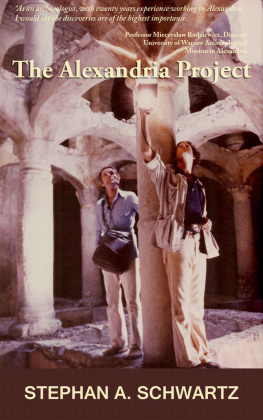
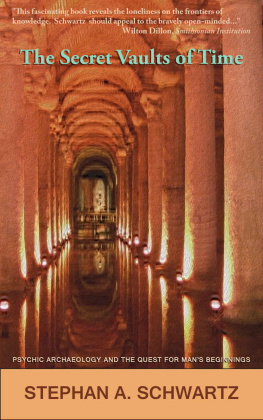
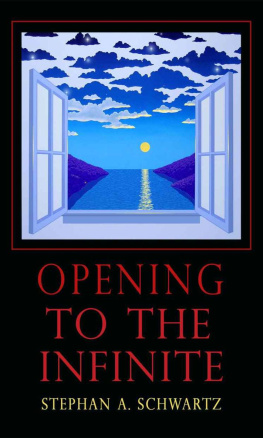

![Stephan Orth - Behind Putin's Curtain: Friendships and Misadventures Inside Russia [aka Couchsurfing in Russia]](/uploads/posts/book/860709/thumbs/stephan-orth-behind-putin-s-curtain-friendships.jpg)


